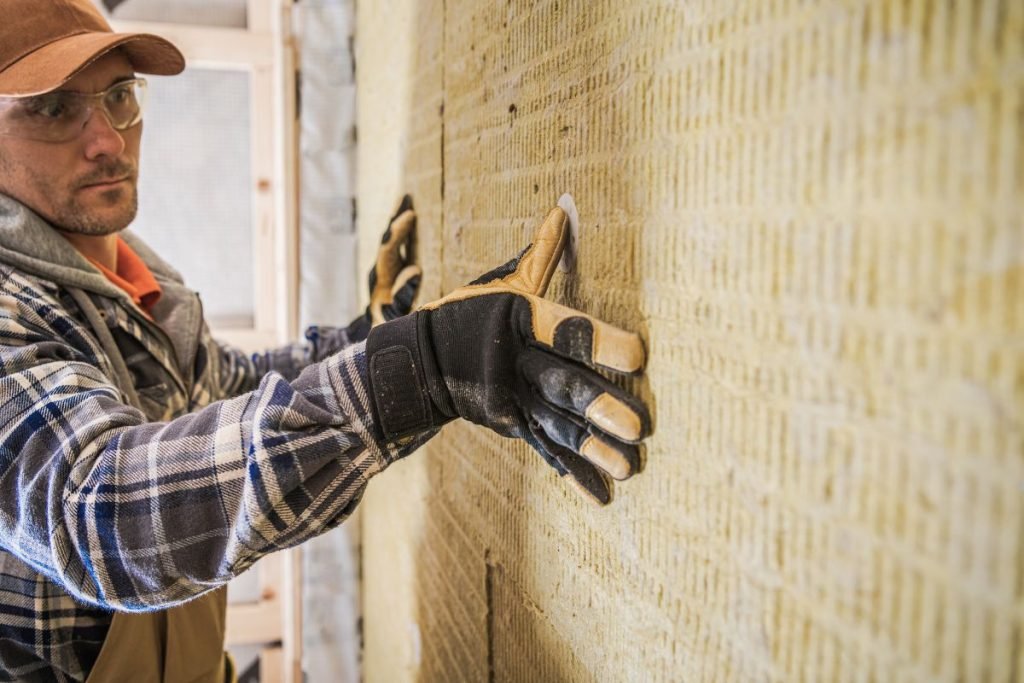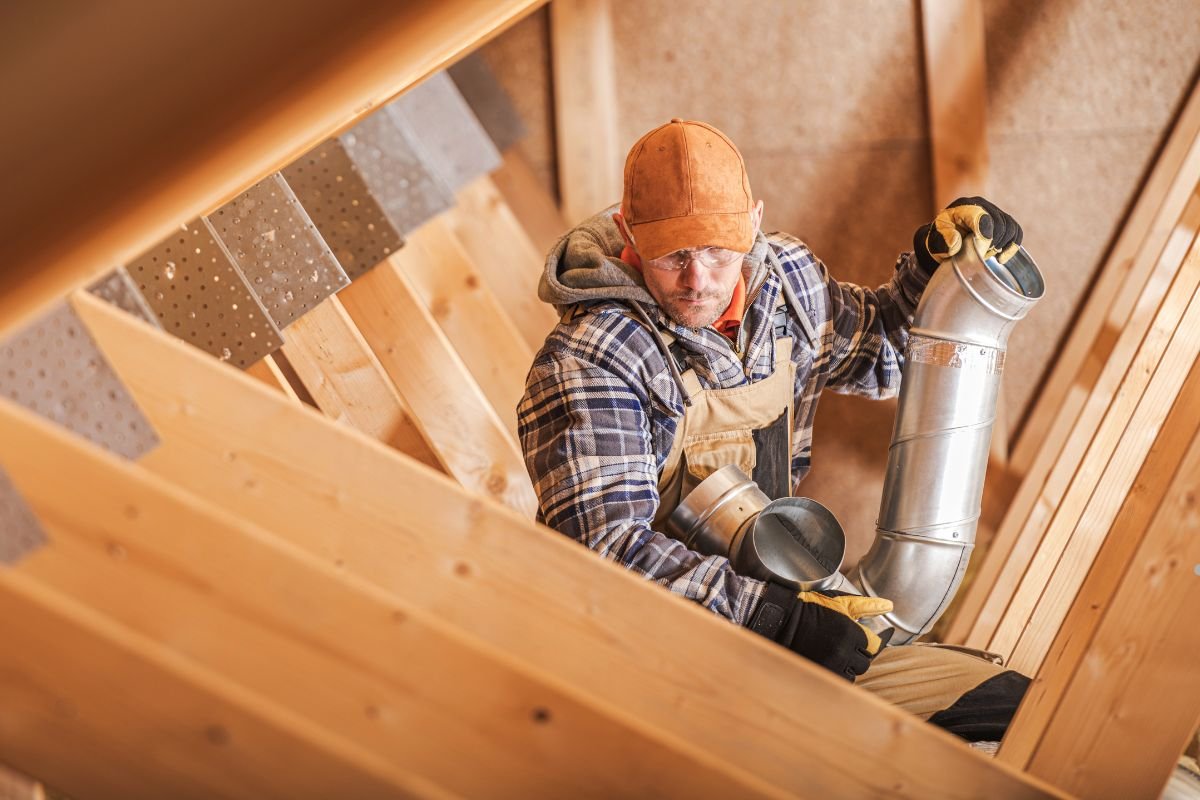
Are you tired of high energy bills and rooms that are always too hot or too cold? Roof insulation is the answer. It acts as a barrier, keeping your home comfortable year-round while significantly reducing energy costs. This comprehensive guide will walk you through everything you need to know about roof insulation, from types and costs to installation and benefits. Get ready to discover how this simple upgrade can transform your home!
Why Roof Insulation Matters: A Comprehensive Overview

Roof insulation is a critical component of any energy-efficient home. It works by preventing heat from escaping in the winter and entering in the summer, maintaining a consistent temperature inside your home. Without proper insulation, your HVAC system has to work harder to keep you comfortable, leading to higher energy consumption and increased wear and tear on your equipment. Investing in roof insulation is a smart move that pays off in the long run. Check out our ceiling insulation services for more information
What is Roof Insulation and How Does It Work?
Roof insulation is a material installed in your attic or roof space to reduce heat transfer. Heat naturally flows from warmer areas to cooler areas. In the winter, heat escapes from your home through the roof, while in the summer, heat enters your home through the roof. Insulation slows down this process, keeping your home more comfortable and saving you money. The effectiveness of insulation is measured by its R-value, which indicates its resistance to heat flow. The higher the R-value, the better the insulation’s performance. Factors like your climate and the type of roof you have influence the R-value you need. Learn more about attic insulation services for optimal energy efficiency!
Ready to improve your home’s comfort and energy efficiency? Call Us today for a free roof insulation consultation!”
Exploring Different Types of Roof Insulation Materials
There are several types of roof insulation materials available, each with its own advantages and disadvantages:
Fiberglass Insulation:
A common and affordable option, fiberglass insulation comes in batts or rolls. It’s relatively easy to install but can lose its effectiveness if it gets wet.
Spray Foam Insulation:
Spray foam insulation expands to fill gaps and cracks, creating an airtight seal. It’s more expensive than fiberglass but offers superior insulation and can help prevent moisture problems. Look for open cell and closed cell options to optimize your budget.
Cellulose Insulation:
Made from recycled paper, cellulose insulation is an eco-friendly option that provides good insulation. It’s often blown into attics, making it ideal for hard-to-reach spaces.
Rigid Board Insulation:
Rigid board insulation is typically used in new construction or roof replacement projects. It’s durable and provides excellent insulation, but it can be more difficult to install than other types of insulation.
Radiant Barriers:
Radiant barriers reflect radiant heat away from your home, making them particularly effective in hot climates. They’re often installed in attics to reduce heat gain during the summer months.
The Advantages of Insulating Your Roof: More Than Just Saving Money
The benefits of roof insulation extend far beyond just lower energy bills:
Reduced Energy Bills:
By preventing heat loss and gain, roof insulation significantly reduces your energy consumption, resulting in lower monthly bills.
Improved Home Comfort:
Insulation helps maintain a consistent temperature throughout your home, eliminating hot and cold spots and creating a more comfortable living environment.
Environmental Benefits:
Reducing your energy consumption also reduces your carbon footprint, contributing to a more sustainable environment.
Increased Home Value:
Proper insulation is a valuable home improvement that can increase your property value.
Prevention of Ice Dams:
In colder climates, roof insulation can help prevent ice dams by keeping your roof surface warmer, reducing the risk of water damage.
Don’t wait to start enjoying the benefits of roof insulation. Call Us now to schedule your installation!”
How Much Does Roof Insulation Cost? A Breakdown of Factors

The cost of roof insulation varies depending on several factors:
Material Costs:
The type of insulation material you choose will significantly impact the overall cost.
Installation Costs:
Labor costs can vary depending on the complexity of the installation and the contractor you hire.
DIY vs. Professional Installation:
DIY installation can save you money on labor costs, but it requires time, effort, and some technical skills.
Generally, fiberglass insulation is the most affordable option, while spray foam insulation tends to be the most expensive.
Installing Roof Insulation: DIY vs. Professional
Deciding whether to install roof insulation yourself or hire a professional depends on your skills, experience, and the complexity of the project:
DIY Roof Insulation: When is it Appropriate?
If you’re comfortable working in tight spaces and have some experience with home improvement projects, you may be able to install fiberglass batts or rolls yourself.
Hiring a Professional Insulation Contractor:
For more complex projects, such as spray foam insulation or insulation in hard-to-reach areas, it’s best to hire a qualified insulation contractor. A professional will have the necessary equipment and expertise to ensure the job is done correctly and safely.
Selecting the Best Roof Insulation for Your Home: Factors to Consider
Choosing the right type of roof insulation for your home requires careful consideration of several factors:
Climate:
Your climate will influence the R-value you need to effectively insulate your home.
Roof Structure:
The design and construction of your roof will determine the best type of insulation to use.
Budget:
Your budget will play a significant role in the type of insulation material you can afford.
R-Value Requirements:
Check your local building codes for minimum R-value requirements.
Addressing Common Issues with Roof Insulation
Even with proper installation, roof insulation can sometimes experience problems:
Moisture Problems:
Excess moisture can reduce the effectiveness of insulation and lead to mold growth.
Improper Installation:
Gaps, cracks, and compressed insulation can all reduce the insulation’s performance.
Rodent Infestation:
Rodents can nest in insulation, causing damage and reducing its effectiveness.
Your Roof Insulation Questions Answered
What is the best R-value for roof insulation?
The best R-value depends on your climate and local building codes.
How long does roof insulation last?
Most types of roof insulation will last for many years, but it’s important to inspect it regularly for damage.
Can I install insulation over existing insulation?
In most cases, yes, but it’s important to address any existing moisture problems first.
Investing in Roof Insulation: A Smart Choice for Your Home
Investing in roof insulation is a smart decision that can improve your home’s comfort, reduce your energy bills, and increase its value. By understanding the different types of insulation, installation options, and potential problems, you can make an informed decision that will benefit you for years to come. Don’t hesitate to contact us to discuss your specific needs and get started on improving your home’s energy efficiency today!

